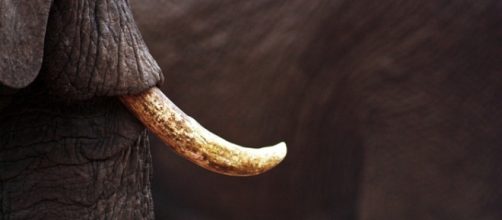Police in Harare, Zimbabwe have confirmed that they have arrested a businessman who is assisting them with inquiries regarding ivory poaching and trafficking. The Herald newspaper reported that the man is George Seremwe, who owns a hunting concession as well as a lodge in the suburb of Avondale.
Seremwe was arrested in connection with the alleged smuggling of six elephant tusks, which may have come from the Parks and Wildlife stockpile. Sources told media, and general rumor in Harare has it that Seremwe was approached by Chinese people to arrange the paperwork or facsimiles for the tusks to be moved out of the country.
It's alleged that he received $50,000 for his services and that he demanded a further payment for a government minister to get the deal done. If this is the case, Seremwe’s co-operation with the Police inquiry could lead to more people answering awkward questions in the near future.
The Police are unable to confirm the full details of the arrest as they are still investigating the case. It's not known whether there are any Chinese accused in custody, or whether the tusks have been seized as evidence. At this time, it would appear that the tusks have been smuggled into Asia.
Zimbabwe is cracking down on poaching and the illegal trade of animal parts such as rhino horn, ivory, and lion paws. Recently they arrested a gang of rhino poachers who were operating in the southeast of the country.
The gang was led by a state security man who's currently in court. In the same incident, one of the accused was sent away to prison for 35 years. Earlier this month, police officers posing as buyers trapped a man who possessed two elephant tusks worth $1380.00.
Cyanide (which is becoming a common weapon by poacherswanting to kill elephants) is readily available in the backstreets of the cities and in mining areas in the country. As part of the joint National Parks and Police wildlife crime operations, police have seized over a ton of the poison. The Hwange elephants have been targeted by poachers, but there are reports that it's used in other rural areas. In November 2015, a tragic poisoning event took place in the Mana Pools World Heritage Site where nine of the red data listed African Wild Dogs died after a water hole was poisoned.
The killing of Zimbabwe’s wildlife, whether by poisoning or shooting, or by the use of traps will continue to take its toll on wildlife until the syndicate leaders are jailed and taken out of the cycle. It'sencouraging to note that in Zimbabwe at present, their efforts to bring dealers, traders, and poachers to justice are targeting the right people, regardless of their social standing or connections.

